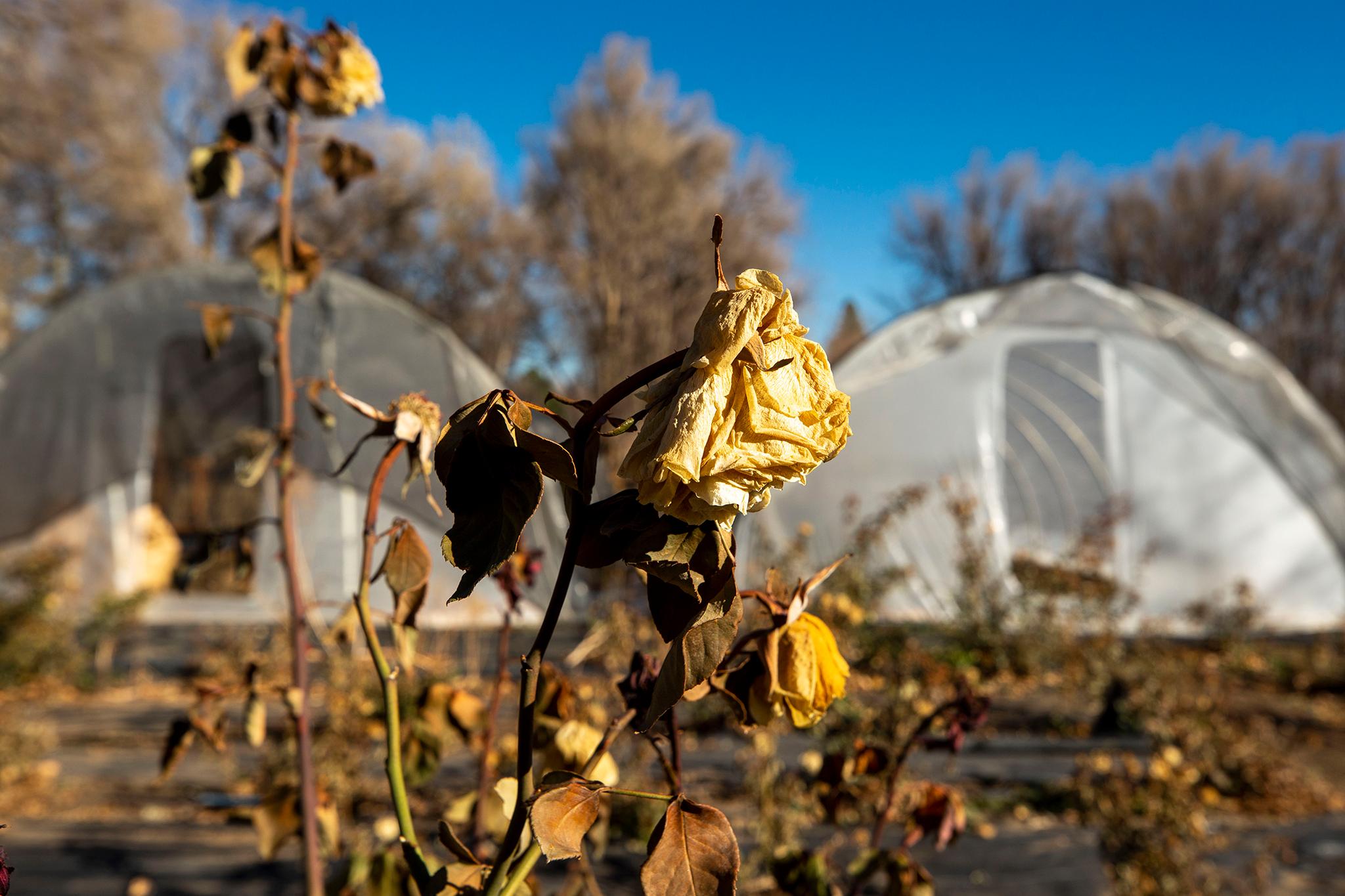On a November day that feels way too warm for November, urban farmer Eric Rooney stands in his sun-drenched garden, a place that nourishes life, and explains why he won't use human remains to fertilize things that people eat.
There's a "perceived ethical issue," he says.
But to fertilize the flowers and trees he sells to customers, Rooney, who owns Half Moon Farm and Rooney Bloom in Lakewood, will use -- reuse, really -- a mixture of amino acids, peptides, sugars and water that once comprised people.
"We have this opportunity to change. It's what, almost 70 degrees in November right now? We have to change the way that we think about how our bodies are returned back to the earth," he says.
Rooney's farm is the downstream piece of a Denver operation aimed at treating death more naturally -- both in terms of how people think about the inevitable, and how people treat the bodies it leaves behind.
The upstream side of the partnership is Be a Tree, a small "water cremation" center in Sun Valley owned by Emily Nelson that opens Friday. Alkaline hydrolysis is the less friendly term for what Nelson does, which entails dissolving the bodies of her clients in a mixture of water and alkaline that breaks down tissue and erases DNA. When the turbo-decomposition is over, each person becomes about 300 gallons of liquid that, it turns out, is an amazing fertilizer. A decedent's family can use some, all, or none of the "tree tea" to plant trees or flowers themselves, but Nelson says most of the remains will likely end up at Half Moon Farm where, in a way, they will bring people back to life.
"We expect to have environmentally friendly alternatives in every area of our life, every big purchase that we make," Nelson says. "Whether it's a car or an appliance, that's just an expectation we have now. So why wouldn't we have the same expectation when it comes to our death care options?"
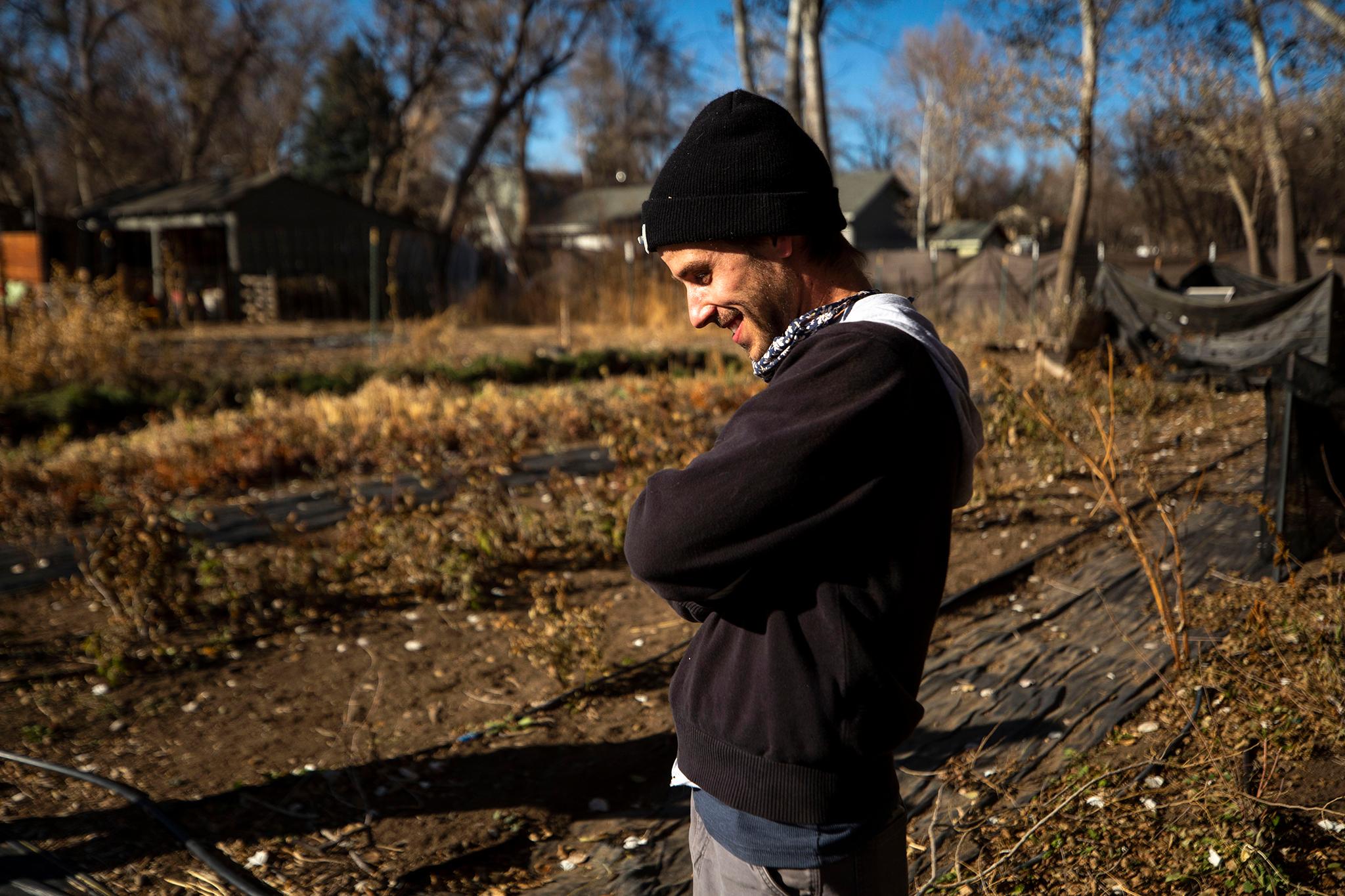
The mom-and-pop shops are part of an emerging environmental movement in the business of death that gives people options beyond chemical embalming, synthetic coffins, and cremations, which experts say are not only harsh but terrible for the environment.
Cremation, which entails burning most of the body into the ether (bones become ash in the urns on our mantels), accounts for an estimated 360,000 metric tons of carbon emissions a year in the United States, according to National Geographic. Coloradans opt for cremation more than 71 percent of the time, according to the Cremation Association of North America. And embalming bodies, another common practice, may preserve people's looks after death, but the cosmetic approach can also leach toxic chemicals into the ground.
Water cremation is the most environmentally-friendly option out there, according to UCLA. It emits no toxins from the body. Nelson recycles things like pacemakers and other implants, while the bones become ash that is either scattered or placed in a "living urn" that gets planted with a sapling. So there's more than one way to be a tree.
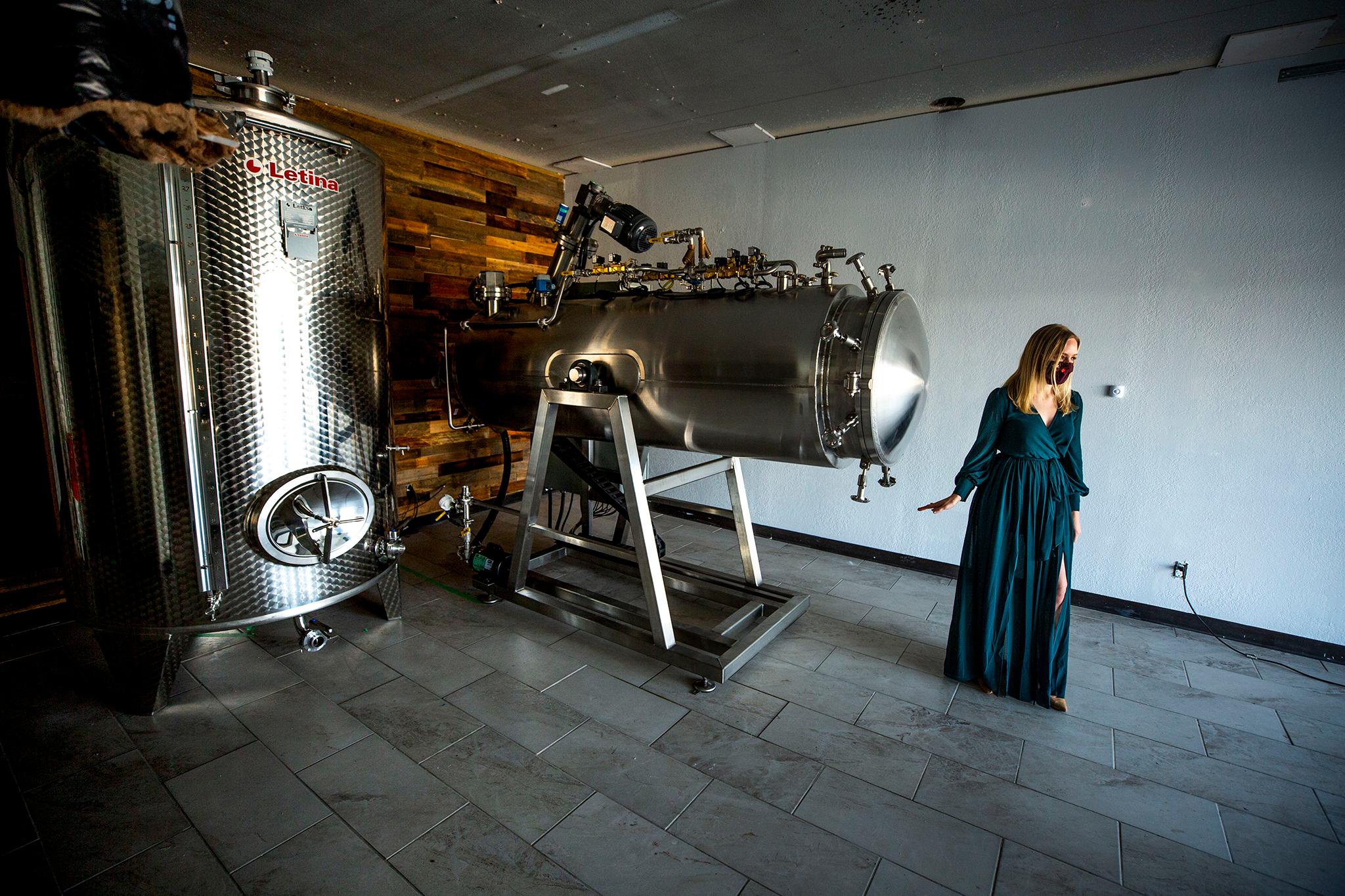
The corpse-dissolving resomater, a large capsule with a submarine-like door where bodies become liquid, takes electricity to operate. But experts estimate that water cremation takes 90 percent less energy than traditional cremation.
Dissolving the body is also a more pleasant way for someone to spend their last moments, even though they're no longer living, Nelson says.
"I've heard it referred to as a final spa treatment," she says, "whereas fire you can view as kind of being a little bit more harsh and violent way to go."
That final spa treatment costs between $2,100 and $2,500 at Be a Tree, depending on the package. Cremation costs vary by city, state and whom you ask. The website Efuneral puts the average price at $3,725, while the Cremation Association of North America pegs it at $1,650.
Pioneers of a greener, softer death say their methods are not just a response to a pollutive industry, but to an impersonal one.
Nelson knows the ways of the mainstream death industry because she was once a cog in what she describes as a machine. She used to work for Service Corporation International, a publicly-traded company that owns about 1,900 crematoriums, funeral homes and cemeteries across North America. Its business model includes buying and investing in local shops and retaining their names.
"Traditionally, you're going to go inside of a casket and then inside of a concrete vault and then into the earth after being embalmed cancerous chemicals, and that's something that just really never sat right with me," Nelson said. "When I learned more about how we treat death in our country, and specifically when we're working with large companies like this, it's very impersonal and it's very disconnected from the family members and from, particularly, the earth."
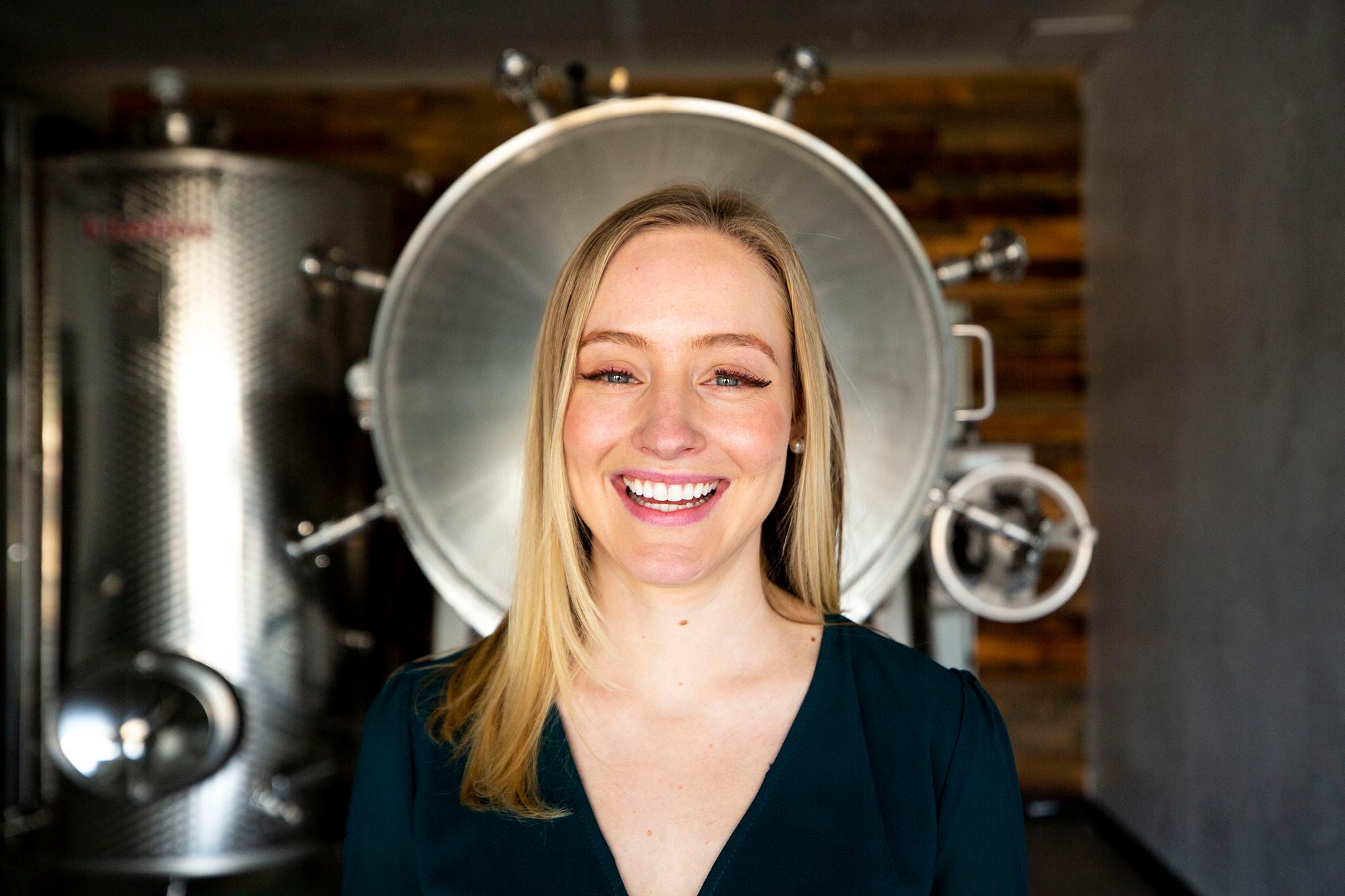
SCI did not grant interview requests for this article. The company's website says it contributes to water reclamation efforts and is replacing its fleet with cleaner cars.
Nelson's experience in the corporate world -- plus a conversation with her mom about how she wanted to go -- vaulted her into her new endeavor at Be A Tree.
Erin Merelli, a death doula -- yes, someone who helps usher people out of this world instead of into it -- runs in the same end-of-life circles as Nelson. She co-founded Deathwives, a collective of educators, professionals and advocates for the dying in Denver.
Merelli, too, says she briefly worked for a large corporation in the industry but didn't like what she saw. She compared selling caskets and end-of-life services to selling used cars at the highest price possible.
"When you start to see kind of the underbelly side of it and how it's an industry, you start to see how there's not much heart and soul in it," Merelli said.
To some end-of-life workers, the same thing that perpetuates the status quo of cremation and embalming is the same thing holding back a greener, softer norm: taboo.
Colorado's death workers are hoping to undermine tradition and help the environment with their emotionally intelligent and more organic approach to the one thing that we can all count on. But its an uphill battle. Deathwives holds "death cafes" where people talk about, well, death and dying. As the cafes grow, organizers hope they'll make the topic less taboo while educating the public on their options, which might surprise the average person.
From the backyard of the Lumber Baron Inn in Highland, Merelli waves her arm and presents a ground full of bright autumn leaves that have fallen to the ground.
"Ironically, we think that's beautiful, but the reality of it is that they're dead," she says. "They're dead."
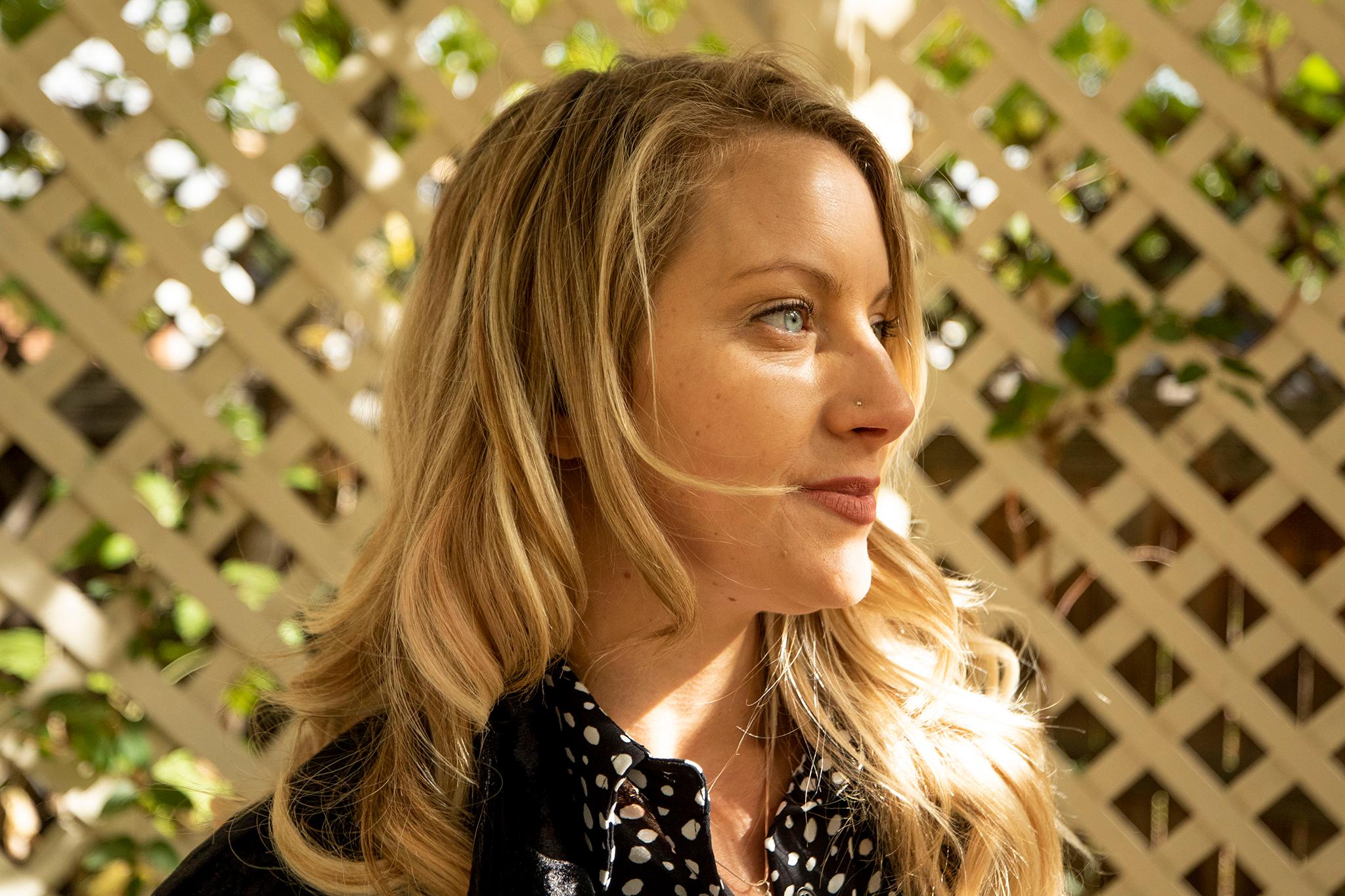
Merelli entered the niche world of death work after painful losses, including the death of her high school boyfriend and first love. He was killed in a car crash when she was 17. But she sees a natural beauty in death that requires no makeup.
"Just the idea of trying to preserve a body after it's died shows us how out of touch we are with the concept of death and the reality that everything dies," Merelli says. "That it is in fact normal and supposed to happen. So it's weird that we try to preserve it."
A lot of things we think of when we think of funerals are more tradition than necessity. Concrete burial vaults might preserve inevitable decomposition a little longer, but Nelson says its main function is to keep a cemetery's landscaping nice and flat. And embalming is a common practice, but it only took off during the Civil War to preserve the bodies of people who died far from home.
Though embalming may be a family or religious tradition, the toxic chemicals usually aren't necessary from a legal or hygienic standpoint, despite what popular culture suggests. In reality, family members can put their loved ones on ice, in their homes, if they want to say goodbye that way. It's a reemerging practice that offers intimacy, says Lauren Carroll, the other half of Deathwives and a funeral director at Return to Nature Funeral Home in Colorado Springs. She organized an in-home funeral for a family whose dead patriarch hadn't seen his sons in 20 years. Their mom said she heard one of her sons talking to his father at 2 a.m.
"And so for him, he had an option to finally heal some wounds that he hadn't been able to heal," Carroll said. "And you don't get that unless you're in-home and have a safe place to do it."
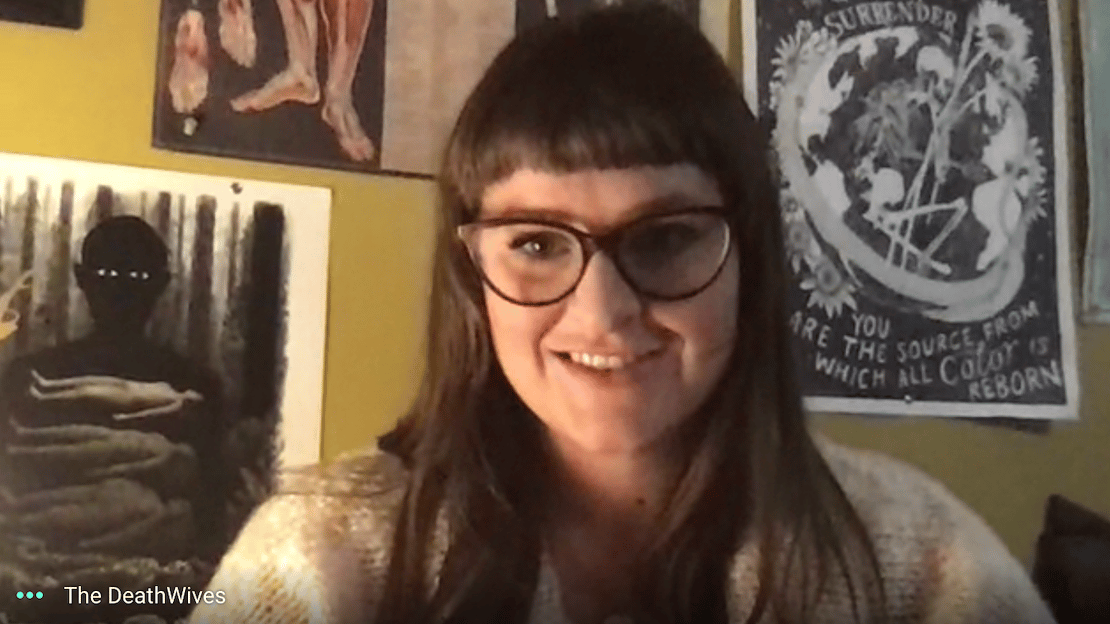
Of course, home funerals also allow you to "play Led Zeppelin really, really loud and give people that freedom to be themselves," she added.
Cremation and coffin burials remain the go-to ways to go in America. Why? Denver's modern death workers say it's a matter of tradition -- and the fact that most people don't like thinking about death, don't like talking about death, and so they certainly don't like planning for death.
"I have not had as many clients as I would like, I'll put it that way," says Vanessa Johnston, owner of Denver End of Life Doula and co-founder of the Colorado End of Life Collaborative. "It is very new, which, sometimes it's hard to be at the beginning of a movement."
It's difficult to get what you want out of an end-of-life experience if you don't plan, everyone in the budding industry says. But if you're willing to think about your mortality ahead of time, you might live again, sort of, in a tree or a flower. Someone like Merelli might come to your side and read you "The Alchemist" -- it's her go-to move to frame a conversation about the universe -- or counsel you on your fear, or connect you with someone to whom you owe an apology.
Otherwise, when someone dies, their loved ones gravitate to doing the typical things because that's what everyone else does. Yet, there is plenty of room for alternatives in perhaps the only market that affects every single person on Earth.

